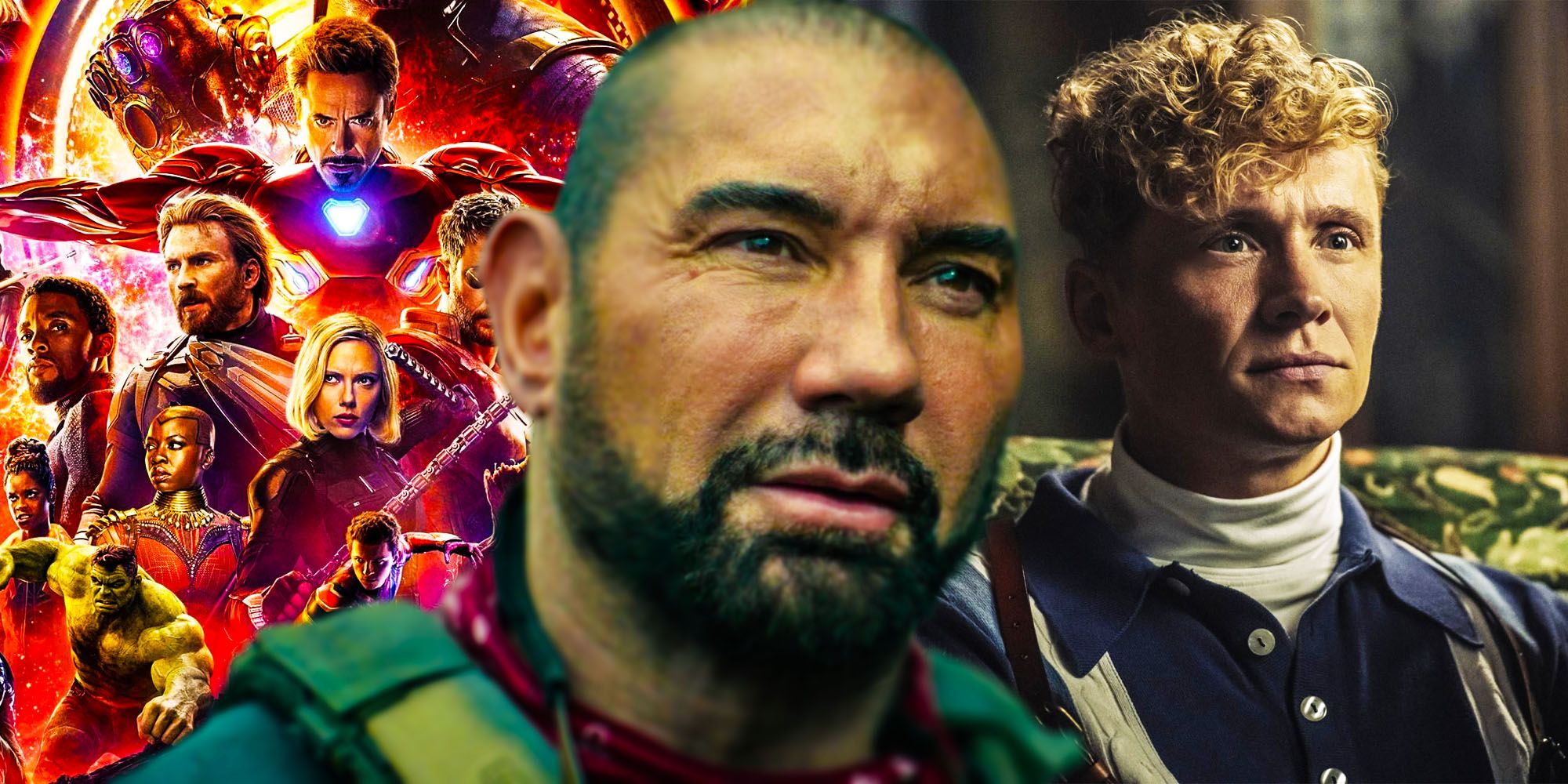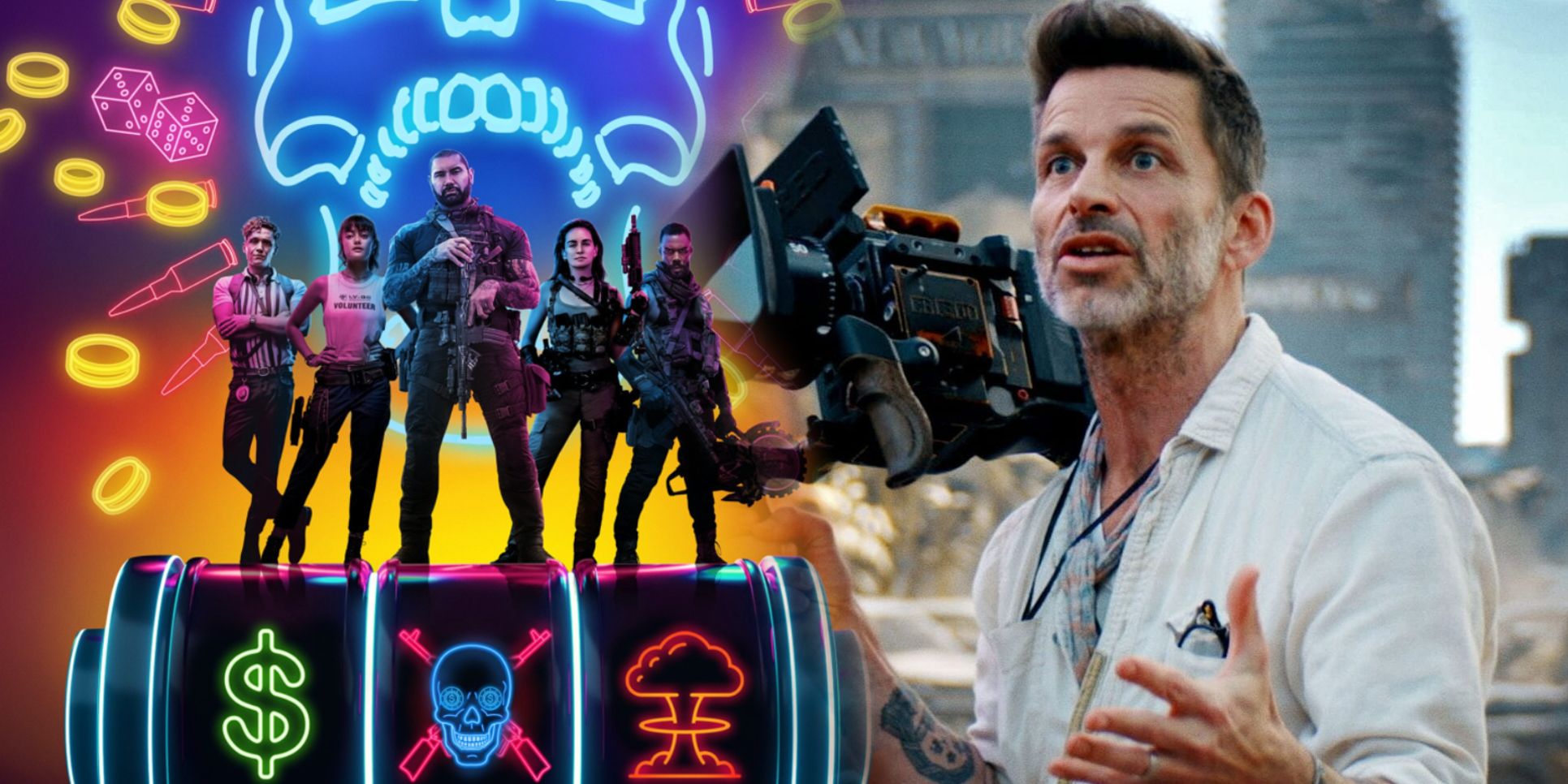Zack Snyder is building out a new shared universe on Netflix starting with Army of the Dead and Army of Thieves, and so far it's the opposite of the MCU. Marvel's cinematic universe is seen by many as the gold standard for shared universes, and many more franchises have tried to emulate the structure, which makes it notable that Snyder is doing something completely different on Netflix.
The MCU started with Nick Fury telling Tony Stark about the Avengers initiative at the end of Iron Man, then introduced more characters via solo movies before having them team up in The Avengers, culminating in dozens of superheroes uniting against Thanos in Avengers: Endgame. The consistency of tone and style quickly revealed a "Marvel formula" which has been employed to great success, earning Fresh Rotten Tomatoes scores for the franchise's first 25 movies and earning the MCU the title of the highest-grossing franchise in history.
Related: How Eternals' Low Rotten Tomatoes Score Could Impact Future MCU Movies
On the surface, Army of the Dead didn't seem like a typical launchpad for a shared universe, but with the release of a prequel movie, an incoming prequel anime series, and a sequel, Planet of the Dead, the franchise potential has become more clear, but the approach to universe building is way different from the MCU.
Zack Snyder Made The Team-Up Movie First With Army of the Dead
While Marvel focused on setting up characters in solo movies first, Army of the Dead jumped right into an ensemble movie. Army of the Dead works despite not having solo movies, but then Army of Thieves provided additional backstory for Dieter, functioning both as his origin movie, but also changing the way we see his part in Army of the Dead.
Dieter's character didn't suffer at all for not having a solo movie before his introduction in Army of the Dead, and was still one of the stand-out characters in the movie. At the same time, knowing Dieter survives Army of Thieves because he showed up in Army of the Dead came first doesn't ruin any suspense in Army of Thieves because the stakes were all personal and tied to characters who didn't appear in Army of the Dead. Despite their stand-along nature, they're also very complimentary movies, with Dieter's extended backstory making him even more interesting when rewatching Army of the Dead, which is probably why the movie jumped back onto Netflix's top trending list after Army of Thieves was released.
The Army of the Dead: Lost Vegas animated series will provide additional backstory to more characters, setting up where the franchise will go in Planet of the Dead, and possibly beyond. The MCU may have set the standard for starting small and building the universe from there, the Army of the Dead universe is proving you can start big and fill in the smaller parts later and it still works.
Army of the Dead and Army of Thieves Are Truly Different Genres
The MCU plays around a lot with genre, taking on spy thriller elements for Captain America: The Winter Soldier or leaning into a John Hughes coming-of-age films with Spider-Man: Homecoming, or space operas with Guardians of the Galaxy, although at their core the movies tend to be different forms of action-comedy movies that simply borrow some tropes and aesthetics from other genres. The approach is successful and gives the universe a big playground to explore genre elements, and there's nothing wrong with a franchise sticking to a core genre - in fact, it's the norm for most franchises - but ultimately, none of the movies actually break out of that core action-comedy genre entirely.
Meanwhile, Snyder's Army of the Dead movies have landed in clearly different genres, both in structure and tone, to the point that they may even have different target audiences. Army of the Dead is very much a zombie movie at its core, but it borrows heavily from heist films and adds some sci-fi elements, while Army of Thieves is a pure heist movie that leans into romantic comedy. The movies share both a heist and zombie component, but those aspects are still delivered through the lens of their respective genres. The drama around the heist and Dieter's safe-cracking in Army of the Dead is driven by zombies, while the zombies in Army of Thieves are simply a global news distraction in the background.
With this approach, the movies still share tonal connections but don't ultimately occupy the same genre spaces. Army of Thieves is also a far funnier movie than Army of the Dead, and some of the comedy would be out of place in the sequel, and likewise, some of the scarier or more violent elements of Army of the Dead would feel out of place in Army of Thieves. Conversely, none of the MCU movies are so radically different that a scene from any MCU film would feel out of place in any of the other franchise entries.
One of the biggest things Snyder talks about with his franchise is the "genre-busting" approach that truly embraces the genre in question and leans into the tropes without breaking them to the point of parody, saying they like to "have fun without making fun." To fully deliver on these genre-busting experiences, each movie needs to truly be a part of the genre it's part of to bend, but not break, the tropes and styles audiences expect.
Army of the Dead and Army of Thieves Work Perfectly as Stand Alone Stories
The Marvel Cinematic Universe thrives on keeping audiences focused on what's coming next. Movies are full of Easter eggs, character teases, story set-up for future movies, and, of course, post-credits scenes. Whether someone loves or hates a Marvel movie, they frequently walk away saying it made them excited for what's coming next, which is one of the biggest factors in the MCU's success.
On the flip side, Army of the Dead ended with a classic horror movie trope of teasing the survival of a threat, although that could also be seen as sequel setup (which it is, with Planet of the Dead on the way), but outside of the sequel, there's no blatant set-up or teases for other spin-offs as many modern franchise movies commonly are. The same is true for Army of Thieves, which leads into Army of the Dead, but doesn't take any other detours to set up future movies. Both movies function completely independently.
While Marvel movies use post-credits scenes to sift the focus to what's happening next, both Army of the Dead and Army of Thieves ask audiences to look deeper in the movie itself to find story clues and ideas of where things could go, leading to theories like the time loop theory. On deeper investigations, both movies contain quite a few references to connect to each other and they're certainly full of opportunities to tell spin-off stories, but none of these teases or clues distract from the movie at hand.
The cool part is both these strategies work. It'd be hard for anyone to claim the Marvel Cinematic Universe hasn't seen both critical and commercial success for its entire run, but Army of the Dead and Army of Thieves have also seen success, with both debuting at #1 on Netflix worldwide, and Army of the Dead becoming one of Netflix's viewed movies ever before the release of Army of Thieves. Proving the alternate shared universe model works, Army of the Dead also jumped back into the top ten trending movies section after the release of Army of Thieves, demonstrating the residual benefit of the shared universe connection.
The explosion of the shared universe model has seen massive success for the Marvel Cinematic Universe and various degrees of success and failure for a number of other franchises that tried to emulate the Marvel formula, but the success of Army of the Dead and Army of Thieves shows there's more than one way to build a universe. As the Zack Snyder's first Netflix universe expands with Army of the Dead: Lost Vegas and Planet of the Dead, hopefully, we'll continue to see fresh approaches to genre filmmaking and universe building.




